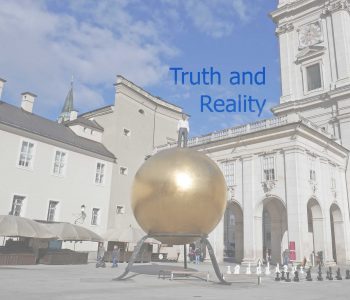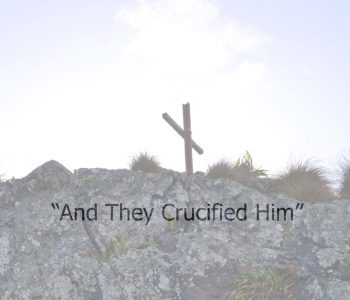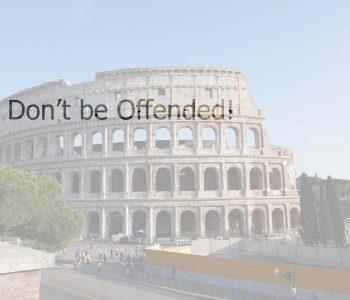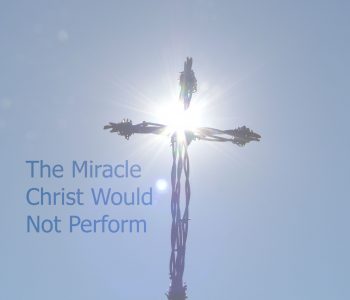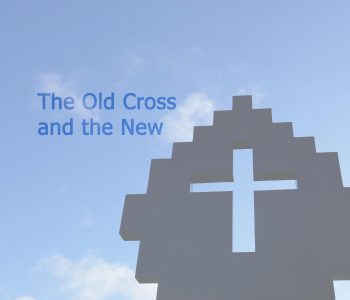 Other Authors
Other Authors
Grasshopper Men
“We were in our own sight as grasshoppers and so we were in their sight” (Numbers 13:33).
Of course they were. If men insist on calling themselves grasshoppers, other men are not likely to think of them as lions. These men were right in their estimate of themselves—they were genuine grasshopper men. Let us look at these words in their context in order that we may be able to see what a grasshopper man is and to understand something of the tragedy of his life.
These men were called and redeemed from the bondage of Egypt and baptised unto Moses in the cloud and in the sea and drank of the spiritual rock which was Christ, and were under orders to possess a great land for God. Under these circumstances they were sent to spy out the land for the people, preparatory to conquest. They went up and saw that the land was all that God promised it to be, but they also found that it was full of great walled cities indwelt by giants. The sight of these loomed so large in their vision and thinking that they had no eyes or mind for anything else. The more they saw these giants and the more they thought about them, the smaller they became in their own sight. It was this testing that discovered them as grasshopper men.
What is a Grasshopper Man?
The very simile used suggests the fundamental characteristic of the man. The grasshopper is a creature whose vision is normally on a horizontal line, the vision of an earth line. In this kind of vision near things look big and a far vision is impossible. You can test this by getting down on the ground in grasshopper shape and looking at an approaching man, or a near wall or a large building. From that angle an ordinary man looks like a giant and an ordinary wall impassable, and an ordinary building like a great mountain. If you would get up from the ground and find your way up to the top of this building and look down upon the ordinary man and wall, things would appear very different.
Therefore, the grasshopper man who views all life from the earth line loses his perspective in life. He has a wholly exaggerated idea of near things and a wholly inadequate conception of the things which give life its deepest meanings, and measure its greatest possibilities. His terms of value are flesh and blood, stone walls and fortified cities. He can never see or appreciate the moral and spiritual realities and purposes which, after all, are the mighty forces of life. These are the things that connect man up with the sources of great power. These men can see imperial Rome with all her military and political powers and think of an all-conquering force, but they cannot understand the irresistible power of a little group of ordinary unknown men who are possessed of a genuine experience of God and compelled by a spiritual message. They cannot see these spiritual forces on the earth-line and therefore they cannot believe that they are, or that they can be equal to, the conquest of the military and political giants of the Roman Empire with all of its mighty cities.
Lack of Perspective
Therefore the grasshopper man is the man who has lost his perspective in God’s world—he sees everything from the earth-line point of view. From that point of view he is never able to give the proper value to the moral and spiritual forces. Material things are more real to him than the spiritual realities which give its deepest meanings to life.
Those men could see the giants and the walled cities, but they lost sight of the throne of God and its regal powers. From this angle they were so filled with the sense of the power of near things that they clean forgot what God did in Egypt and at the Red Sea. The grasshopper man has a poor memory when the crisis hour comes. The sight of big men and towering walls wipes out the memories of the glorious victories of the past. Having lost the vision of the throne, he has lost the sense of its power. These men forgot who they were. They forgot they were called and sent of God. Forgetting the throne and the commission, they lost their place in their world.
Having lost their bearings in their world they were not able to understand the times in which they were living. They were living in an hour when God was definitely moving forward to new and greater things. It was a crisis hour in the history of the world. The nations of Canaan had run their allotted time—the cup of their rebellion was full and they must give way to a people who were willing to move in the will of God. A nation understanding and moving in God’s will and purpose could not fail. God was working both “to will and to do”. Having willed, there was no question of His power to do. But men, looking at things on the earth-line, could not understand this. Having lost sight of the throne, they lost the sense of the presence and power of God. The things that filled their vision were spirit forces, but the grasshopper man did not have the discernment to see this. The grasshopper man is never able to rightly discern the times. He is out of touch with the throne and therefore lacks the insight that makes real the eternal forces and purposes which give history its final meanings and determine its course.
The Grasshopper Man is a Coward
As a result the grasshopper man is a coward. He did not have the courage to follow God’s command and to accept the challenge of the compelling power of a life that is dominated by the throne and its authority, the sense of mission and destiny that blinds him to all obstacles standing in the way of the destined course—that thing that was in the mind of Lord Tennyson when he made one of his finest characters say,
For the deed’s sake have I done the deed
In uttermost obedience to the King.
That is the utterance of a soul that feels carried along by a compelling sense of loyalty to the King and feels it must do what the King commands whatever the consequences. That was the thing that moved Paul and drove him on to Rome regardless of dangers. It was the thing that made Martin Luther irresistible as he stood in the midst of his enemies and the enemies of God’s throne at Worms. It was the thing that gave courage and steadfastness to Abraham Lincoln during the dark days when the storms threatened to break the ship of State on the rocks of human selfishness. Caleb knew what it was when his righteous soul cried out against the cowardly advice of the grasshopper men, saying, “Let us go up at once and possess it: for we are well able to overcome it”. There is nothing of the coward in that loyal challenge to obey the King.
Obstacles to Progress
Because he is a coward, the grasshopper man is in danger of holding back the movement of God’s hosts in the day of conquest. He cannot defeat the ultimate purposes of God—the land must be taken, and if the grasshopper man is not willing to risk everything in obedience to the command of the King, God will raise up a generation who will do it. But He must wait for the grasshopper man to die in the wilderness and to get out of the way of His on-moving chariot. In this case He had to pause for nearly forty years while the grasshopper men marked time in the wilderness. After they turned their back on the King and turned aside from His orders, they had nothing to do but wait for death. They ran around a good deal and did a good deal of talking and complaining, but all their activity and dust-raising counted nothing for God and His purpose. It is a very solemn thing to disobey the commands of the throne and to turn from the God-given task to the barrenness of the wilderness.
Lack of Vision
That is the thing that men are in danger of doing in the fateful hour in which we are living. Men are looking too much along the earth line and are losing the vision of the throne and the regal compulsion that drives men to do exploits for the King.
Jesus is King
Jesus, who is God manifest in the flesh, is the King of kings and Lord of lords. The making of Jesus King is not left to us. That was determined in the counsels of Deity. We are not asked as to whether or not we will have Him as King. We have positively no option in that matter. God settled that thing long ago. What we are asked to do is to recognise His Kingship—to submit to His government. Our mission… is not to ask people as to whether or not they shall have a King, or as to whether or not they like the idea of a King. Our mission is a mission of reconciliation. Our business is to beseech men everywhere to be reconciled to God in Christ. God is not going to be reconciled to our ideas or plans. We must be reconciled to His rule and accept His law.
This is the word of the throne—”All authority hath been given unto Me in heaven and on earth. Go ye therefore…”. This is the command of a King—not a King in mere theory but a King in reality. “All authority hath been given” unto Him. Therefore the command is not to ask men as to whether or not they live what He has said or taught, but to teach them “to observe all things whatsoever I commanded you”.
This is the King’s commission given to the church in this age and she has no right to change it. The whole point of it is that Jesus has already been given all authority and therefore He commands people to obey His commands. “All things whatsoever I commanded you”—that is a challenge to full-grown men. “Man am I grown, a man’s work must I do.” What is a man’s work? “Follow the Christ, the King.” That is the thing the grasshopper man is not willing to do. He has lost the vision of the throne and he is looking along the earth line and near things look big and he is afraid.
Since you were brought back to life with Christ, focus on the things that are above… God raised us up and seated us in the heavens with Christ Jesus. God did this to show future generations the greatness of His grace by the goodness that God has shown us in Christ Jesus. (Col. 3:1; Eph. 2:6,7).
Published in “A Witness and A Testimony” magazine in November 1963 with the author initials: J. M. McI.
Related message: Google Heaven



